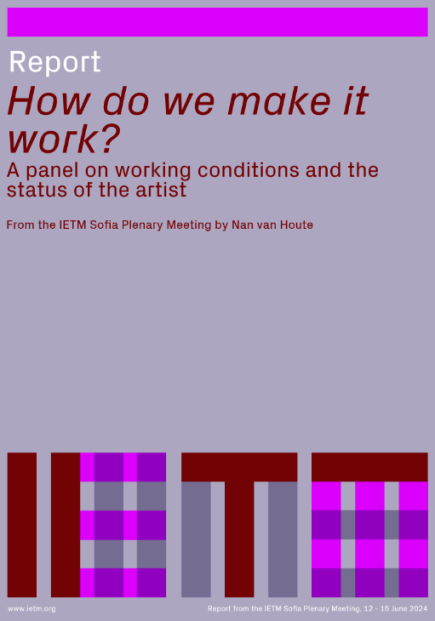How do we make it work?
A panel on working conditions and the status of the artist
From the IETM Sofia Plenary Meeting by Nan van Houte
Amidst the challenges magnified by the pandemic, the importance of the 'status of the artist' has become increasingly evident in both national and international dialogues. This concept has not only influenced numerous discussions but has also been incorporated into the names of new laws. The topic of working conditions in the cultural sector has gained momentum at the European Union level, and several national governments across the globe introduced new measures to tackle it.
However, UNESCO’s recent study investigated the global situation and concluded that despite the increase in various laws and measures to address artists’ status, conditions are worsening for many artists worldwide. What are the reasons? Is political will insufficient to effect change, especially in the face of rapid changes and constantly emerging global challenges? Are these measures too progressive for their rather conservative contexts? Or is there a lack of recognition of both old and emerging issues that artists really face today?
This panel was designed to make a breakthrough in the ongoing quest for better working conditions in the arts sector by gaining deeper insight into the types of solutions in place and the obstacles to their success and shedding light on the nuances crucial for advocating or designing policies in the field.
Moderator and presenter:
Elena Polivtseva, independent researcher, Belgium
Speakers:
Tom Fleming, director of Tom Fleming Creative Consultancy (TFCC), United Kingdom/Portugal
Katrien Reist, curator, researcher, art-worker, policy advisor, Belgium
Anna Videnova, chief expert at the Ministry of Culture of Republic of Bulgaria

